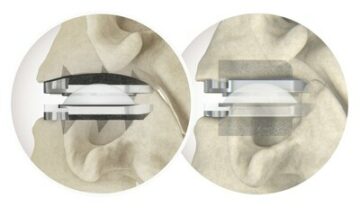Novel compact, single-story 4 Kelvin 1.0 GHz NMR systems already accepted at RIKEN, Japan and University of Barcelona, Spain in late 2022 ahead of schedule
FÄLLANDEN, Switzerland–(BUSINESS WIRE) - Bruker Corporation today announced successful customer installations of two novel, compact 1.0 GHz NMR spectrometers for advanced structural and molecular biology applications well ahead of original schedules in late 2022. Both new Ascend Evo 1.0 GHz NMR systems operate at 4.2 Kelvin without subcooling below liquid Helium temperatures, and as a result have ~65% lower liquid Helium consumption than previous 1.0 GHz 2 Kelvin, two-story magnets. These new 1.0 GHz NMR magnets also have significantly reduced footprint, weight, and ceiling height requirements and fit into most single-story laboratories. The compact systems are easier to manufacture, site and install, thus allowing acceptance in shorter timeframes.
Selles pressiteates on multimeedia. Vaadake täielikku väljaannet siit: https://www.businesswire.com/news/home/20230203005036/en/

Dr. Ichio Shimada, Team Leader at RIKEN Center for Biosystems Dynamics Research in Yokohama, Japan (Photo: Business Wire)
Both compact ultra-high field NMR systems are generating excellent scientific data for functional structural and molecular biology, as well as for phenomics clinical research. This allows scientists to dive deeper into the structural details, binding and dynamics of protein structures and complexes for fundamental cell biology and pathobiology research. The RIKEN Center for Biosystems Dynamics Research in Yokohama, Japan was the first to receive the Ascend Evo 1.0 GHz NMR system, which was successfully installed and accepted in less than two months. The RIKEN team under Dr. Ichio Shimada will use GHz NMR to study dynamic structures of biomolecules in solution and to investigate the relationships between dynamic structures and biological function or pathobiology.
Prof. Ichio Shimada stated “I’m very satisfied about the smooth delivery and installation of this brand new Ascend Evo 1.0 GHz spectrometer in late 2022. We started producing first NMR research results already a few weeks after the successful commissioning. This ultra-high field GHz-class NMR spectrometer delivers new insights for our GPCR and RNA research, which is newly launched, with excellent resolution and highly sensitive direct detection capabilities for 15N ja 13C. This will support and strengthen our research in structural biology with a particular focus on dynamics.”
In 2022, the Spanish Singular Scientific and Technical Infrastructures (ICTS) high-field NMR network with nodes in Barcelona, Madrid and Bilbao, purchased two 1.0 GHz instruments to be sited in Barcelona and Bilbao. These instruments will be open for competitive access and will pave the way for a new structural biology hub in Spain. The Ascend Evo 1.0 GHz NMR instrument in Barcelona was successfully installed in less than 6 weeks and is already generating exceptional data. The second Spanish 1.0 GHz system is expected to be delivered to CIC bioGUNE in Bilbao in the summer of 2023.
Professor Miquel Pons Valles, Group Leader of the BioNMR Group at Universitat de Barcelona and his team use biophysical methods, especially NMR, as well as chemical biology, molecular biology, and computations to study proteins in regulatory processes, where dynamics is essential for function. The Ascend Evo 1.0 GHz NMR will also advance their research on functionally very important intrinsically disordered proteins (IDPs).
Dr. Falko Busse, President of the Bruker BioSpin Group, commented: “We are excited to announce the remarkably rapid delivery and customer acceptance of two 1.0 GHz NMR systems. These low-maintenance, compact NMRs with lower helium consumption can bring the power of GHz NMR to many more laboratories.”
Bruker Corporationi kohta (Nasdaq: BRKR)
Bruker võimaldab teadlastel teha läbimurdelisi avastusi ja töötada välja uusi rakendusi, mis parandavad inimelu kvaliteeti. Brukeri suure jõudlusega teaduslikud instrumendid ning kõrge väärtusega analüütilised ja diagnostilised lahendused võimaldavad teadlastel uurida elusid ja materjale molekulaarsel, rakulisel ja mikroskoopilisel tasemel. Tihedas koostöös oma klientidega võimaldab Bruker innovatsiooni, paremat tootlikkust ja klientide edu bioteaduse molekulaar- ja rakubioloogia uuringutes, rakendus- ja farmaatsiarakendustes, mikroskoopias ja nanoanalüüsis, aga ka tööstuslikes rakendustes. Bruker pakub diferentseeritud kõrge väärtusega bioteaduse ja diagnostika süsteeme ja lahendusi prekliinilises pildistamises, kliinilise fenomeni uurimises, proteoomikas ja multiomikas, ruumilises ja üherakubioloogias, funktsionaalses struktuuri- ja kondensaatbioloogias, aga ka kliinilises mikrobioloogias ja molekulaardiagnostikas. Lisateabe saamiseks külastage: www.bruker.com.

Vaadake versiooni versiooni aadressil businesswire.com: https://www.businesswire.com/news/home/20230203005036/en/
- SEO-põhise sisu ja PR-levi. Võimenduge juba täna.
- Platoblockchain. Web3 metaversiooni intelligentsus. Täiustatud teadmised. Juurdepääs siia.
- Allikas: https://www.biospace.com/article/releases/bruker-announces-successful-customer-installations-of-first-two-compact-1-0-ghz-nmr-systems-to-advance-structural-biology/?s=93
- 1
- 2022
- 2023
- a
- MEIST
- vastuvõtmine
- juurdepääs
- edendama
- edasijõudnud
- pärast
- eespool
- Lubades
- võimaldab
- juba
- Analüütiline
- ja
- Teatama
- teatas
- teatab
- rakendused
- rakendatud
- tõusma
- Barcelona
- alla
- vahel
- siduv
- bioloogia
- BioSpace
- bränd
- Brand New
- läbimurre
- tooma
- äri
- Business Wire
- võimeid
- lagi
- keskus
- keemiline
- kliiniline
- lähedal
- COM
- kommenteeris
- konkurentsivõimeline
- arvutused
- tarbimine
- koostöö
- KORPORATSIOONI
- klient
- Kliendi edu
- Kliendid
- andmed
- sügavam
- esitatud
- annab
- tarne
- detailid
- Detection
- arendama
- diferentseeritud
- otsene
- dünaamiline
- dünaamika
- lihtsam
- võimaldama
- võimaldades
- eriti
- oluline
- suurepärane
- erandlik
- erutatud
- oodatav
- uurima
- FUNKTSIOONID
- vähe
- väli
- esimene
- sobima
- Keskenduma
- Jalajälg
- täis
- funktsioon
- funktsionaalne
- põhiline
- teeniva
- Grupp
- kõrgus
- heelium
- siin
- Suur
- kõrgelt
- HTTPS
- Keskus
- inim-
- Imaging
- oluline
- parandama
- paranenud
- in
- tööstus-
- info
- infrastruktuur
- Innovatsioon
- teadmisi
- paigaldama
- paigaldatud
- instrument
- instrumendid
- uurima
- Jaapan
- Hilja
- käivitatud
- juht
- taset
- elu
- Eluteadus
- Vedelik
- Magnetid
- tegema
- palju
- materjalid
- meetodid
- mikrobioloogia
- Mikroskoopia
- molekulaarne
- kuu
- rohkem
- kõige
- Multimeedia
- Nasdaq
- võrk
- Uus
- sõlmed
- romaan
- Pakkumised
- avatud
- töötama
- originaal
- eriline
- jõudlus
- Pharma
- Platon
- Platoni andmete intelligentsus
- PlatoData
- palun
- võim
- president
- vajutage
- Pressiteade
- eelmine
- Protsessid
- tootlikkus
- Valk
- Valgud
- ostetud
- kvaliteet
- kiire
- saama
- Lühendatud
- regulatiivne
- Suhted
- vabastama
- Nõuded
- teadustöö
- resolutsioon
- kaasa
- Tulemused
- RIKEN
- RNA
- rahul
- teadus
- teadlased
- Teine
- tundlik
- märgatavalt
- site
- lahendus
- Lahendused
- allikas
- Hispaania
- hispaania
- ruumiline
- alustatud
- väljendatud
- Tugevdama
- struktuuriline
- Uuring
- edu
- edukas
- Edukalt
- suvi
- toetama
- süsteem
- süsteemid
- meeskond
- Tehniline
- .
- oma
- et
- täna
- all
- Ülikool
- kasutama
- väärtus
- versioon
- Väga rahul
- vaade
- nädalat
- kaal
- mis
- will
- Traat
- ilma
- sephyrnet











